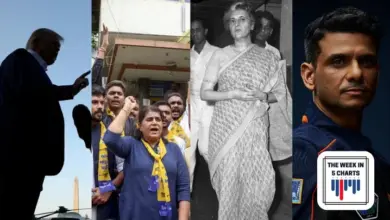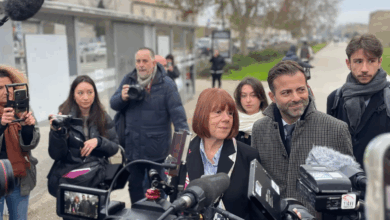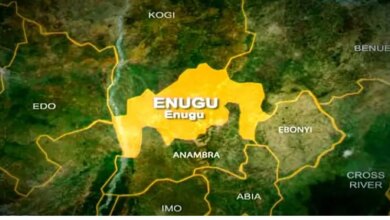Disarming the Streets: How Toronto’s Gun Retrieval Program is Saving Lives and Why Ghana Must Follow Suit

In Toronto, residents are surrendering guns in exchange for safety. In Ghana, guns are crossing borders faster than the police can count them. The contrast is startling: one city disarming its citizens to preserve peace, another watching its youth arm themselves for war.
When Toronto Police launched their Gun Buyback and Retrieval Program, sceptics called it symbolic, a soft response to a hard problem. Yet, in less than a year, the initiative saw hundreds of firearms voluntarily surrendered, removing deadly weapons from homes, streets, and criminal reach. The result? Fewer shootings, a drop in violent crimes, and a stronger bond of trust between law enforcement and the community.
Now, contrast that with Ghana.
Across the Atlantic, Ghana’s police are not collecting guns; they’re trying desperately to track them. From smuggling routes through the Sahel to backyard blacksmiths producing crude “craft guns,” the country is witnessing an alarming rise in gun-related violence. Youth gangs in cities like Kumasi and Accra are arming themselves with unregistered firearms, while armed robberies and politically motivated clashes turn deadly.
The reality is grim: where Toronto retrieves, Ghana reacts.

Toronto’s Model: Turning Guns into Safety
The success of Toronto’s gun retrieval initiative lies not in force, but in foresight. The city’s police service, working closely with community organisations and the municipal government, created a simple yet effective framework:
- Anonymous surrender: Citizens can hand in firearms, ammunition, or replica weapons without facing charges.
- Incentive-driven approach: Participants often receive financial compensation or public recognition.
- Community trust: The initiative emphasises collaboration, not criminalisation, building bridges with vulnerable communities.
Through these measures, Toronto Police Services have retrieved thousands of illegal firearms over the years, disrupting criminal access to guns before they are used in assaults, robberies, or domestic violence.
In 2024 alone, the city reported a steady decline in gun-related homicides, proof that prevention through retrieval works. Toronto’s police chief has repeatedly emphasised that “every gun turned in is a life potentially saved.”
Ghana’s Growing Gun Crisis

Meanwhile, Ghana’s streets are growing more dangerous. According to the National Commission on Small Arms and Light Weapons, over 2.3 million illicit weapons are circulating within the country, a staggering number in a nation once praised for stability.
The Ashanti Region has become the epicentre of gun violence, with increasing reports of armed robberies, gang attacks, and vigilante groups. Many of these weapons are smuggled from neighbouring countries such as Burkina Faso, Togo, and Côte d’Ivoire, while others are locally manufactured.
Dr Adam Bonaa, Executive Secretary of the Commission, has repeatedly urged Ghanaians to report illegal possession, but awareness campaigns alone cannot stop a crisis of this magnitude. The situation demands action, not appeals.
Each illegal firearm represents a potential tragedy, a market quarrel that turns fatal, a political rally that ends in bloodshed, or a robbery that claims innocent lives.
The Power of Prevention: What Ghana Can Learn from Toronto
Toronto’s strategy offers Ghana a powerful lesson: the fight against gun violence begins before the trigger is pulled.
By proactively retrieving firearms, Toronto removes the tools of violence from circulation, reducing the likelihood of future crimes. Ghana, on the other hand, largely depends on reactive policing responding after crimes occur, instead of preventing them.
A National Gun Retrieval Exercise in Ghana could be a game-changer. Modelled after Toronto’s approach, it could allow citizens to surrender illegal or unlicensed weapons without fear of prosecution. Such a program, backed by incentives or community recognition, would not only reduce the number of guns in circulation but also encourage public participation in national security.
This initiative should be led by the Ghana Police Service in partnership with the National Commission on Small Arms, traditional authorities, and local governments. Chiefs and opinion leaders can play a vital role in mobilising communities to surrender weapons and embrace peace.
Beyond Retrieval — Restoring Trust
One of the greatest barriers to gun control in Ghana is distrust between citizens and law enforcement. Many people fear that surrendering weapons could expose them to legal trouble or political victimisation.
Toronto’s program succeeded partly because it treated citizens as partners, not suspects. Ghana’s approach must do the same. Public education campaigns should emphasise safety, anonymity, and national duty, not fear or punishment.
Moreover, the retrieved weapons must be properly documented and destroyed, not recycled into the system, a problem that has eroded public confidence in the past. Transparency and accountability are key.
A Call to Action
Ghana’s gun problem is not a police issue; it’s a national emergency. As Canada proves, peace is not automatic; it is engineered through deliberate policies and decisive action.
For every gun retrieved in Toronto, a tragedy may have been prevented. For every gun smuggled into Ghana, a tragedy is waiting to happen.
The government must act now, not tomorrow, to implement a comprehensive national gun retrieval program, tighten border surveillance, and prosecute traffickers without compromise. Civil society must echo the call, and the youth must reject the illusion of power that comes from holding a weapon.
Because if Ghana continues to watch while its youth arm themselves, the nation risks trading its peace for peril.
Conclusion: The Choice Before Us
Toronto’s streets are getting safer because the city chose prevention over reaction. Ghana can make the same choice. The difference between peace and chaos is not geography; it is governance.
If we truly believe in “Silencing the Gun, Saving a Life,” then we must prove it not just in speeches, but in action.
DISCLAIMER: The Views, Comments, Opinions, Contributions and Statements made by Readers and Contributors on this platform do not necessarily represent the views or policy of Multimedia Group Limited.
DISCLAIMER: The Views, Comments, Opinions, Contributions and Statements made by Readers and Contributors on this platform do not necessarily represent the views or policy of Multimedia Group Limited.
Source link





